United Kingdom Diploma
Where can I buy a fake City and Guilds Association Electrical Installation Level 3 certificate?
- Product ID:United Kingdom Diploma
- QQ:799520747
- WhatsApp: +86 13690285467
- WeChat: 236461877
- Email: diplomacenter@qq.com
- Time: 2024-08-04 16:49
- FEEDBACK
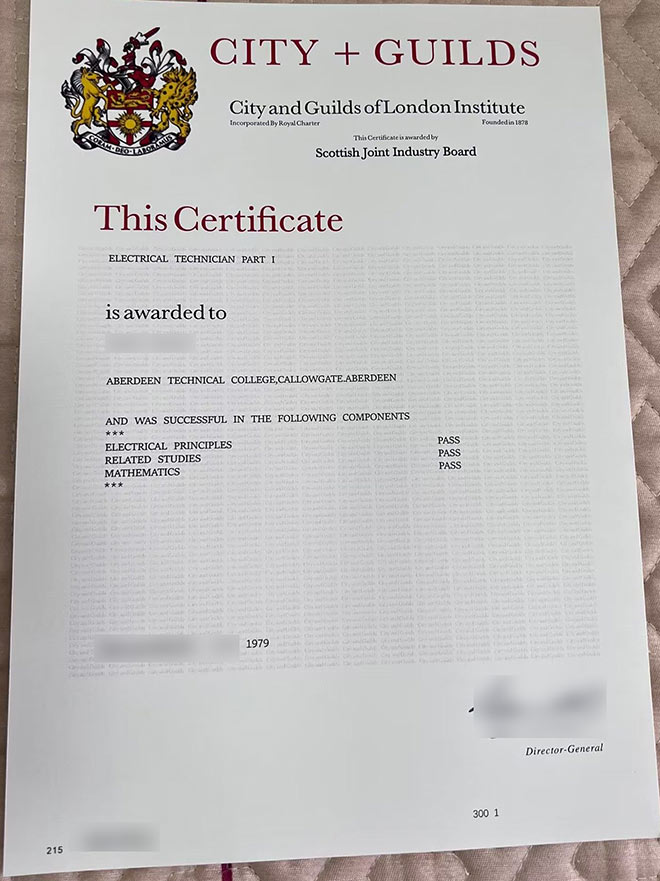
(1979 City and Guilds Electrical Technology Level 1)
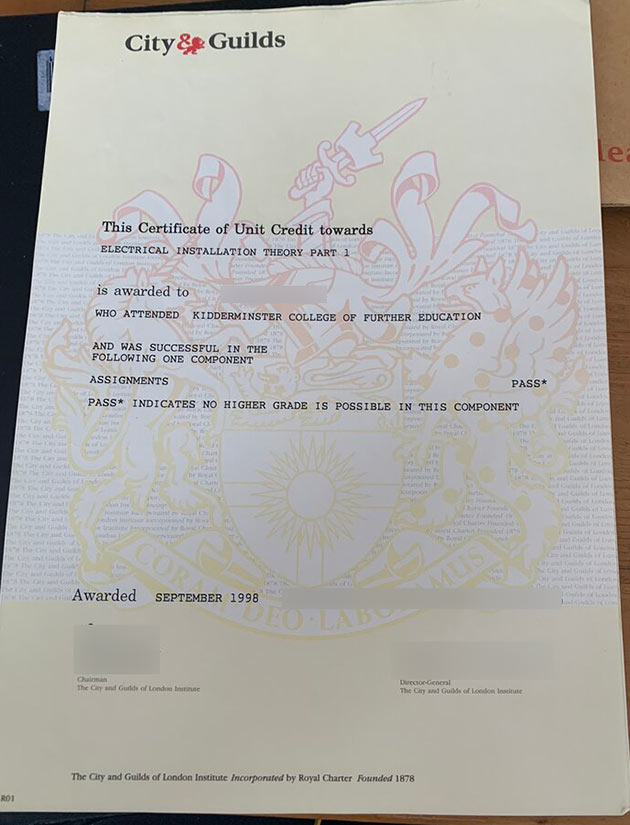
(1998 City and Guilds Certificate Level 1 in Electrical Theory)
-
Industry Recognition: This certificate is widely recognized within the electrical installation industry. It signifies that the holder has achieved a certain level of competency and knowledge in electrical installations, which is valued by employers.
-
Career Advancement: Holding this certificate can enhance career prospects and opportunities for electricians and electrical installers. It demonstrates to employers that you have completed a recognized and rigorous training program.
-
Skill Development: The Level 3 Certificate involves practical training and assessment in advanced electrical installation techniques, regulations, and safety procedures. This hands-on experience equips individuals with the skills needed to perform electrical installations effectively and safely.
-
Compliance and Standards: Electrical work is regulated in many countries to ensure safety and compliance with standards. Having a City & Guilds Level 3 Certificate indicates that the individual has been trained to meet these standards and regulations.
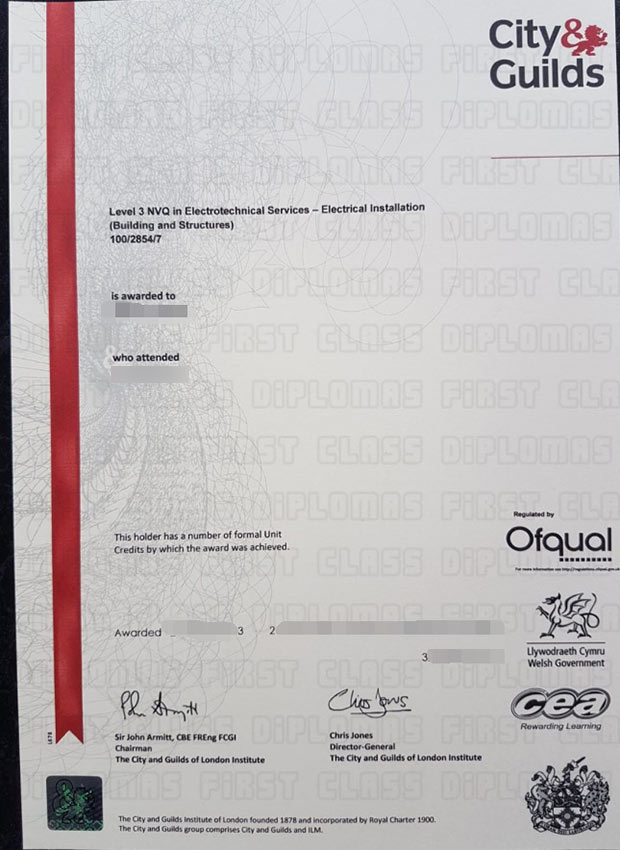
(2013 City and Guilds Electrical Equipment installation Level 3 certificate)
-
Level 1: This level typically covers basic skills and knowledge in electrical installations. It may be suitable for those starting out in the field or seeking an introduction to electrical work.
-
Level 2: A Level 2 qualification in electrical installations usually builds upon the foundational skills covered at Level 1. It delves deeper into electrical theory, regulations, and practical installation techniques.
-
Level 3: The Level 3 qualification is more advanced and is designed for individuals who have completed Level 2 or have relevant experience in the electrical industry. It covers advanced topics such as inspection and testing, fault diagnosis, and more complex installation procedures.
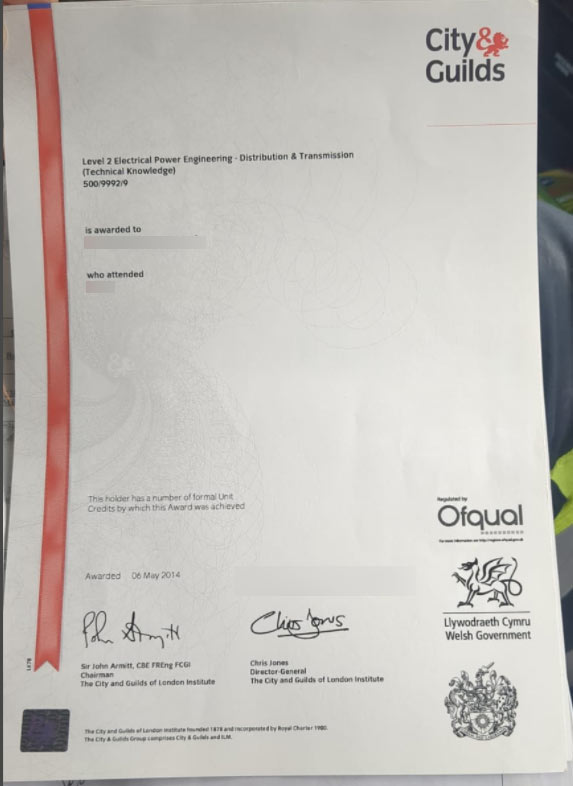
(2014 City and Guilds Power Distribution and Transmission Level 2 certificate)
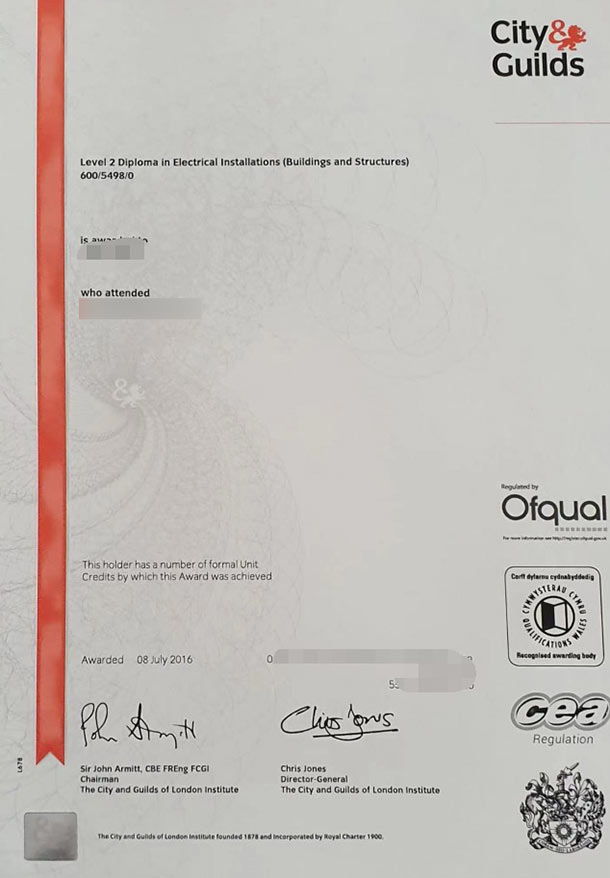
(2016 City and Guilds Electrical Installation Level 2 certificate)
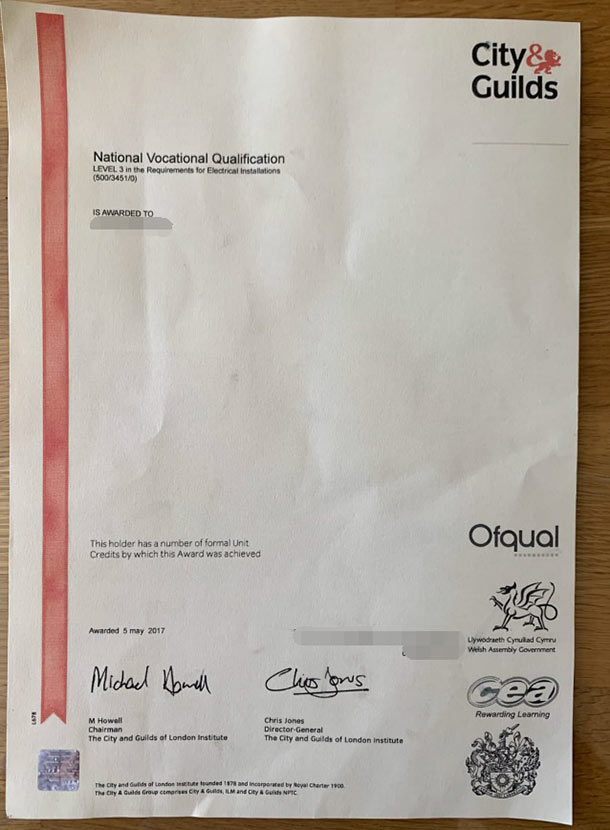
(2017 City and Guilds Electrical Equipment 3 and certificate)
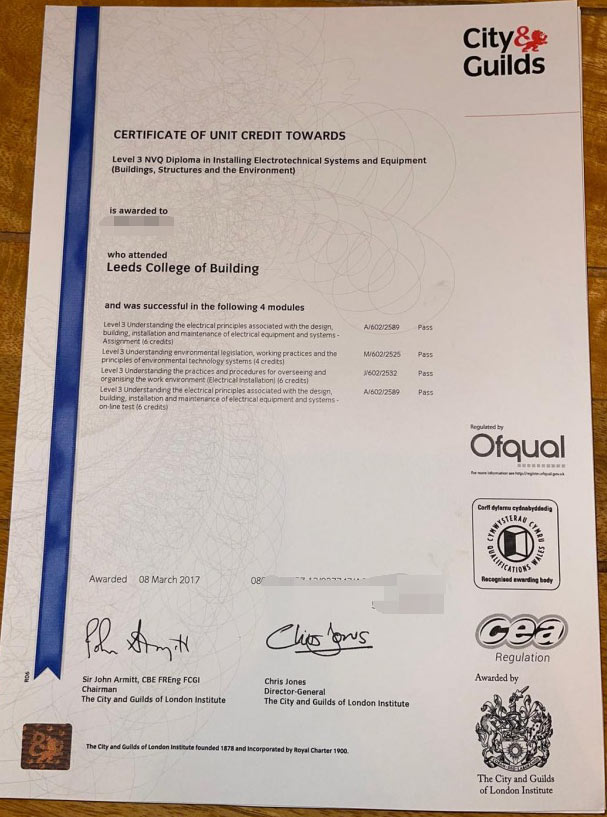
(2017 City and Guilds Electrician System and Equipment Installation Level 3 certificate)
-
Verification of Competence: An electrical certificate verifies that the holder has completed a recognized training program and has demonstrated competence in electrical installations, maintenance, or inspection tasks. This is crucial for ensuring that electrical work is carried out safely and effectively.
-
Compliance with Regulations: In many countries, electrical work must comply with strict safety regulations. Holding a valid electrical certificate confirms that the individual or organization is compliant with these regulations, reducing the risk of electrical hazards and ensuring the safety of occupants.
-
Professional Recognition: Electrical certificates are often required or preferred by employers, clients, and regulatory bodies when hiring electricians or electrical contractors. It provides reassurance that the person performing electrical work has the necessary skills and knowledge to do so competently.
-
Insurance Purposes: Some insurance providers may require evidence of certified electrical work to validate coverage for electrical installations or repairs. Having a certificate can facilitate smooth interactions with insurance companies in case of claims related to electrical issues.
-
Career Advancement: Holding an electrical certificate, especially at higher levels or with additional endorsements (such as inspection and testing), can enhance career prospects and open doors to more specialized roles within the electrical industry.
-
Consumer Confidence: For clients and homeowners, an electrical certificate provides peace of mind that the electrical work meets professional standards and has been carried out by a qualified individual or company.
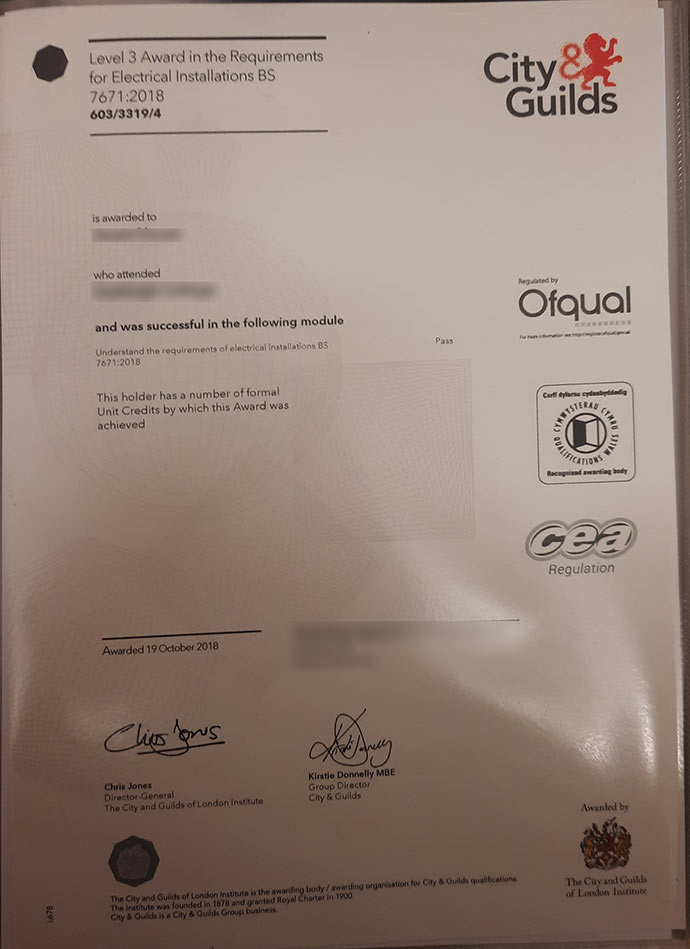
(2018 City and Guilds Electrical Installation Level 3 certificate)
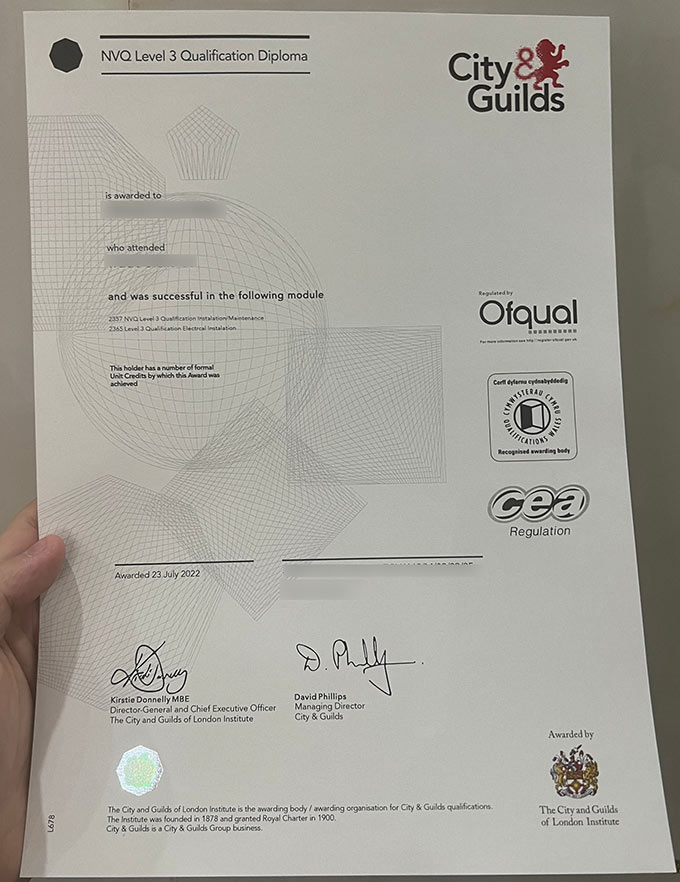
(Level 3 certificate for City and Guilds electrical installation in 2022)

Related reading:Order Fake City an guilds Level 3 in welding Certificate Online
CATEGORIES
LATEST NEWS
CONTACT US
Wechat: 236461877
WhatsApp: +86 13690285467
Email: diplomacenter@qq.com







